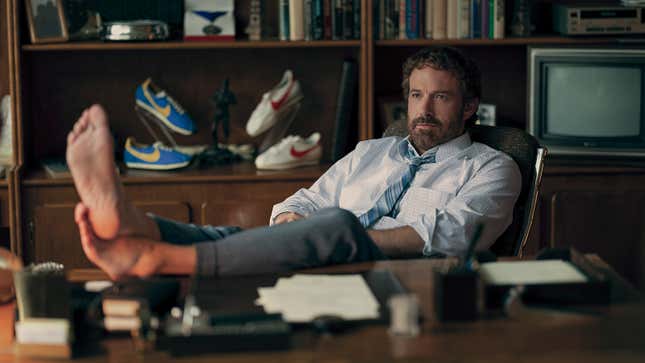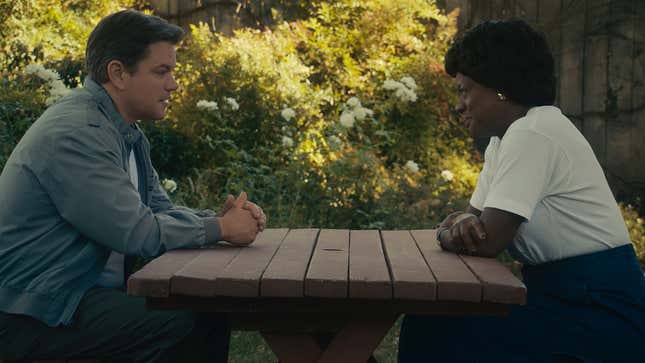Ben Affleck’s ‘Air’ Is a Crowd-Pleaser (Especially If the Crowd Is Full of Capitalists)
This is a zippy, quippy movie that will have people cheering for visionary white male capitalists.
EntertainmentMovies

Ben Affleck’s Air is not a biopic, or at least, it’s not the kind of biopic that we’re accustomed to seeing. It’s an early rider of a wave of fictionalized movies based on real brands (including the upcoming Flamin’ Hot and Blackberry movies, as well as the currently streaming Tetris) that may become the new normal. But Air, in its telling of Michael Jordan’s head-spinningly lucrative venture with Nike to launch the Air Jordan sneaker line, feels like a biopic in terms of its investment in “greatness” and a guarantee of a happy ending before a single ass hits a theater seat. (Air is out now.)
To the credit of everyone involved, that ending—one that finds Jordan eventually signing with Nike, an underdog brand when it approached the then-rookie basketball star in 1984—feels well earned. It was the product of Nike exec Sonny Vaccaro’s ability to predict the future in terms of Jordan’s star power and market his virtuosity via sportswear. “I don’t want to sign three players. I want to sign one. I want to sign him,” says Matt Damon’s Vaccaro during one of several impassioned speeches he nails in Air. “We build a shoe line around just him. We tap into something deeper, into the player’s identity, into that.” We know where this is headed, and yet the tension and excitement that builds as Vaccaro nails down the deal is testament to Affleck’s directorial aptitude. Air is a zippy, quippy, pop-culture obsessed movie (it’s really more about the culture of sports than sports themselves) that will have people cheering for visionary white male capitalists.
-

-

-

-

-

-

-

-

-

-

-

-

-

-

-

-

-

-

-

-

-

-

-

-

-

-

-

-

-

-

-

-

-

-

-

-

-

-

-

-









































